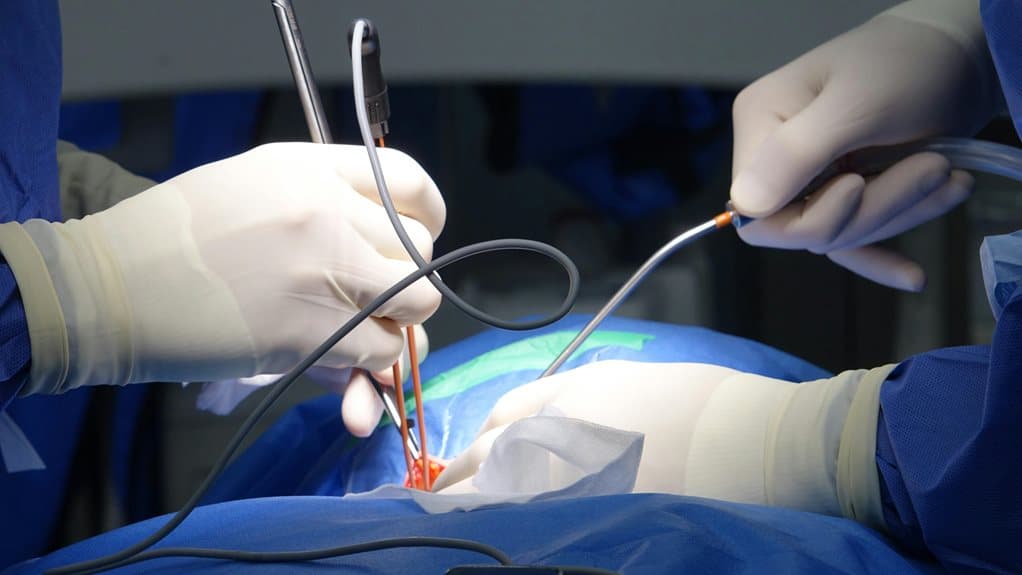Gaps in treatment can seriously jeopardize your personal injury case. Insurance companies might argue that your injuries are minor or unrelated if there are delays or inconsistencies in your medical care. Prompt and consistent treatment is essential in establishing a clear link between the accident and your injuries. Solid medical records are key to counter defense arguments and demonstrate causality. Discover how you can effectively manage these challenges with strategic legal guidance.
Understanding Gaps in Medical Treatment
When steering through the complexities of personal injury cases, understanding gaps in medical treatment is essential. You must recognize that a gap in medical treatment, whether between the accident and initial care or during follow-up appointments, can jeopardize your personal injury claim.
Insurance companies scrutinize these gaps, often suggesting that injuries are minor or unrelated to the accident. Consequently, it’s vital to seek medical attention promptly and adhere to consistent treatment. Doing so helps in documenting the severity of injuries and establishing a causal link to the accident.
This documentation can bolster your case, making it harder for insurers to dispute your claim. A personal injury attorney can guide you in maintaining records and ensuring that treatment gaps don’t complicate recovery or your legal pursuits.
Consequences of Delaying Medical Attention
Although it might seem like a minor oversight, delaying medical attention after an injury can greatly undermine your personal injury claim.
When you postpone treatment, insurance companies may argue that your injuries are less severe, suggesting that immediate care would’ve been sought if they were serious. A gap in treatment complicates establishing a causal link between the accident and your injuries, allowing defendants to dispute liability.
Furthermore, untreated injuries can worsen, leading to chronic conditions that impair recovery. Insurance companies could claim that delays mean your injuries stem from unrelated incidents.
Prompt medical attention is essential for proper documentation of your injuries, strengthening your claim and improving your chances of receiving fair compensation in personal injury cases.
Importance of Adhering to Treatment Plans
If you’re involved in a personal injury case, sticking to your treatment plan is essential. Gaps in treatment can lead insurance adjusters to question the severity of your injuries.
By adhering to the treatment plan, you provide vital medical documentation that personal injury lawyers need to support your claim. Consistent follow-ups are important to demonstrate a clear link between your accident and ongoing issues, reinforcing your case’s legitimacy.
If you stop treatment prematurely, insurers might argue that you failed to mitigate damages, potentially lowering your compensation. Personal injury attorneys rely on thorough medical records to validate your need for prompt medical care.
As a result, diligently seeking treatment guarantees you’re covered if disputes arise regarding your claim’s value and subsequent medical expenses.
The Impact of Medical Records on Personal Injury Claims
Medical records serve as the backbone of any personal injury claim, providing indisputable evidence that ties your injuries directly to the accident.
Consistent, documented treatment is vital in establishing a causal link, demonstrating the severity and ongoing impact of your injuries. Insurance companies scrutinize these records closely. Treatment gaps can raise suspicions, leading them to question your claim’s legitimacy and argue your injuries aren’t as severe.
The type and duration of your medical treatment influence the perceived necessity of expenses, directly affecting your compensation. Without solid medical documentation, your legal representation may struggle to counter arguments from defendants aiming to downplay your injuries.
Thorough medical records are essential to securing the compensation you rightfully deserve.
Addressing Legitimate Reasons for Treatment Gaps
When managing a personal injury claim, it’s imperative to understand how legitimate reasons for treatment gaps can impact your case. Unrelated illnesses, personal commitments, or transportation issues might cause you to miss medical appointments, creating treatment gaps.
To protect your personal injury claims, document these legitimate reasons meticulously. Keep an open line of communication with healthcare providers to make certain they’re informed about any delays, which reinforces the necessity of your care.
Clearly record missed appointments and their causes, as these records provide significant context when questioned by insurance companies or in court. Inform your legal counsel about any legitimate treatment gaps, so they can effectively explain them during the claims process, preserving the integrity of your case.
The Role of Legal Representation in Managing Treatment Gaps
Understanding the legitimate reasons behind treatment gaps is only part of the equation; the role of legal representation in traversing these gaps is equally significant.
A personal injury lawyer is essential in managing gaps in care, as they can effectively communicate with insurance companies. They document reasons for treatment gaps, ensuring you maintain records of medical care and appointments.
Prompt medical treatment is imperative, and lawyers guide you in understanding the impact of consistent medical care on your case and compensation. Legal professionals also gather and present medical evidence to counter claims that gaps render treatments unnecessary.
Conclusion
You’ve seen how vital it is to avoid gaps in medical treatment for your personal injury case. Delaying medical attention or not following your treatment plan can seriously undermine your claim. Medical records play a pivotal role, and consistency is key to their credibility. If you have legitimate reasons for treatment gaps, communicate them clearly. A skilled attorney can help manage these issues, ensuring you maintain the strength of your case and maximize your potential compensation.



